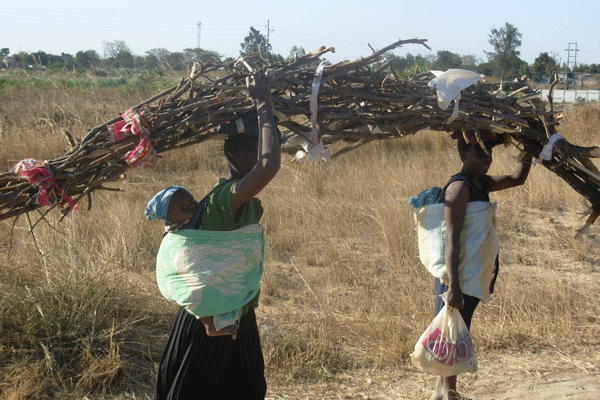
An incessant shift in weather patterns is no longer a myth as significant change is noticeable the world over.
environment By Kennedy Nyavaya

Most scientists and researchers of climate change are in agreement that although all humanity is bearing the brunt of this phenomenon, women and children are the most affected.
As the rhetoric of gender equality and equity fast gathers pace in the developed world, it appears to be a different story in Third World countries.
Less developed countries in Africa, Zimbabwe included, are male-dominated and this is proving to be a disadvantage on climate change mitigation and adaptation.
“When it comes to climate change there is a lot of pre-existing vulnerabilities we have to attempt to address before we actually deal with the impacts of climate change,” said Gareth Horsfield, a climate change and environmental expert at the Swedish embassy in Zimbabwe.
“Women are responsible for 70% of agricultural labour in communal areas, so they are the ones that are going to feel the impacts of climate change first as they are also responsible for feeding their children and many other things.”
Zimbabwe’s rural population largely consists of women and children such that it translates to mostly female-headed households as most men work in the cities.
- Chamisa under fire over US$120K donation
- Mavhunga puts DeMbare into Chibuku quarterfinals
- Pension funds bet on Cabora Bassa oilfields
- Councils defy govt fire tender directive
Keep Reading
According to Horsfield, this has resulted in women adopting survival tactics that are damaging to the environment for life sustenance.
“Quite often they do this [life sustenance] by exploiting their natural environment. We have seen in the last 15 years deforestation increasing, more land being used for agriculture as well as soil erosion, among many other things,” he said.
At such a rate, there is need to foster ways to stop harmful activity on our environment by empowering more women with knowledge on a climate- friendly way of life.
However, owing to the patriarchal setup, men are the majority with access to media and other tools of information dissemination, hence they have more knowledge on how the climate is changing.
Are the men, being harbingers of such knowledge, taking enough action to alleviate the problem?
“They may be taking action but most of the time it is negative and it’s based on their fear of risks,” said Horsfield, adding that it was time for women to hold their own on the climate change issue.
Swedish ambassador to Zimbabwe, Sofia Calltorp concurred in a recent interview with The Standard Style that although the fight against climate change should ultimately be collective, women’s voices were essential to get a tangible outcome.
“Women are often at home and they have a different view than men on issues relating to the environment, so bringing women’s voices into the climate change debate is crucial in order to achieve results,” said Calltorp.
The Swedish foreign mission has adopted a new five-year climate change and environment strategy which aims to assist the country in addressing climate change.
“Through this structure, we will work with a wide range of Zimbabwean partners and actors to raise awareness but also completely contribute to projects that we do believe can reduce climate change,” Calltorp added.
True to her sentiments, the embassy has started working towards assisting as they launched an outdoor exhibition dubbed Facing the Climate in Harare last month.
The ministry of Environment, Water and Climate is yet to step up its programme in order to support the efforts of stakeholders.
“As an embassy, what we are focusing on is a particular strategy on bringing economic development to women and young people by providing opportunities in the green sector,” said Horsfield.
Meanwhile, what has affected progress most times in the country apart from gender imbalance has been the politicisation of climate change.
Local politicians have cited drought to cover up failure to end food shortages among the largely poverty-stricken citizenry.
This has in turn affected food production among some commercial farmers who have reduced investment into crops in fear the rains could fail, hence rural folk resort to the environmentally-hazardous farming methods.
If all these loose ends are tied, Horsfield said: “There is an opportunity to use climate change for economic development through green jobs, renewable energy and green economic growth.”
With the greatest catalyst to climate change being emission of toxic gases which mostly come from fossil fuels, Zimbabwe needs to refocus on its national power supply.
In 2015, Zimbabwe submitted its intended nationally determined contribution to the United Nations.
In the agreement, representatives promised to cut energy-linked emission by 33% by 2030 under a business as usual scenario but not without obligatory rich countries’ financial aid.
Altogether, one fact remains certain, that climate change is real and it is perhaps the greatest threat to humanity currently.











